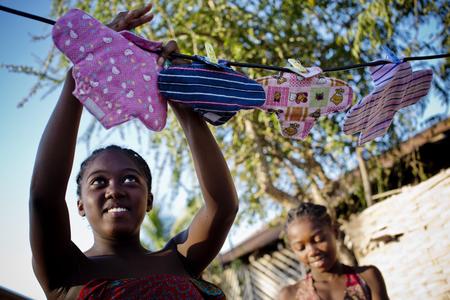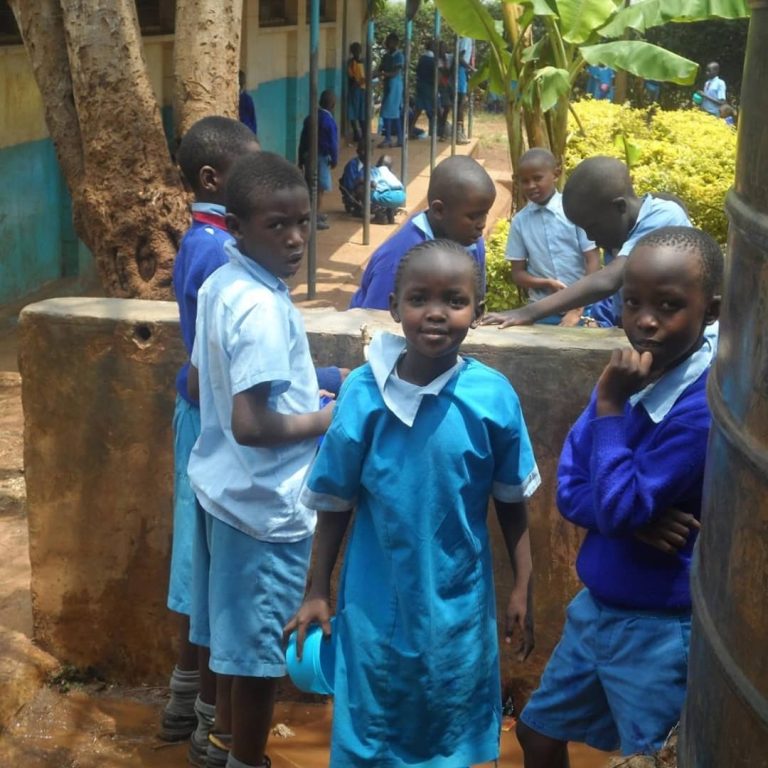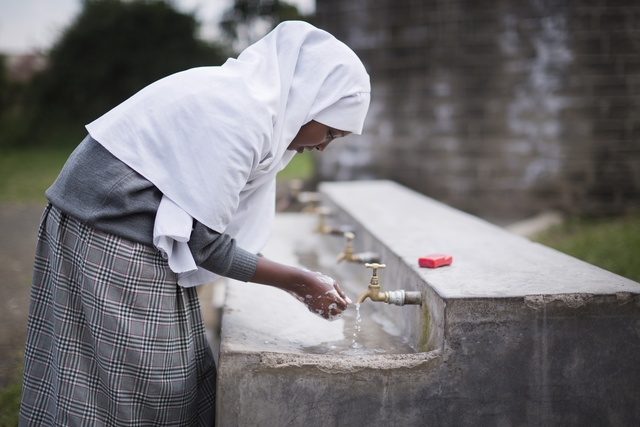Menstrual hygiene is an essential aspect of public health, yet it is often neglected, especially in developing countries. For millions of women and girls, managing menstruation is not only a biological challenge but also a social and cultural one. Lack of access to basic sanitary products, clean water, and education around menstruation exacerbates the difficulties many face.
In this article, we will discuss the barriers to proper menstrual hygiene in developing countries and potential solutions to improve access and education, empowering women and girls to live healthier, more dignified lives.
A Detailed Explanation of Menstrual Hygiene Challenges in Developing Countries
In developing countries, the challenges surrounding menstrual hygiene stem from various socio-economic, cultural, and infrastructural barriers. These issues affect millions of women and girls, leading to negative health outcomes, educational setbacks, and social stigma. Let’s delve deeper into some of the key challenges.
1. Limited Access to Sanitary Products

One of the most pressing issues in developing regions is the lack of affordable and accessible sanitary products. Many women and girls cannot afford commercial sanitary pads or tampons. In some rural areas, such products may not even be available, leading to the use of unhygienic alternatives such as cloth, leaves, or even ash. These substitutes not only increase the risk of infections but also create discomfort and shame for menstruating women.
2. Inadequate Water, Sanitation, and Hygiene (WASH) Facilities
Access to clean water and proper sanitation is another significant barrier. In regions where water is scarce, and sanitation facilities are inadequate, menstruating women struggle to maintain hygiene. Many schools in rural areas lack separate and functional toilets for girls, making it difficult for them to manage their periods with dignity. In some cases, girls skip school during their menstruation, leading to absenteeism and eventually dropping out.
3. Cultural Taboos and Stigmatization
Cultural taboos and societal norms around menstruation perpetuate a cycle of shame and secrecy. In many cultures, menstruation is considered “dirty” or impure, and menstruating women are excluded from religious, social, or household activities. Such stigma discourages open conversations about menstrual health, leaving girls and women uninformed about proper menstrual hygiene practices. This lack of education can lead to health complications and reinforce negative attitudes toward menstruation.
4. Lack of Menstrual Health Education
Menstrual health education is crucial in empowering women and girls to manage their periods safely and confidently. Unfortunately, in many developing countries, there is little to no formal education on this topic. Without adequate information, young girls are often left confused, scared, and unprepared when they experience their first period. This lack of knowledge also affects their ability to care for themselves, leading to poor menstrual hygiene practices.
5. Economic Barriers
Poverty is a major factor that exacerbates the menstrual hygiene crisis in developing regions. Families living in poverty prioritize basic needs like food and shelter, often leaving menstrual hygiene products at the bottom of the list. In addition to sanitary products, clean water, private toilet facilities, and soap are considered luxuries. These economic barriers result in women and girls facing health risks and emotional stress during menstruation.
Potential Solutions for Improving Menstrual Hygiene
While the challenges are substantial, there are several practical and sustainable solutions that can help improve menstrual hygiene management (MHM) in developing countries. By addressing these solutions holistically, we can empower women and girls to manage menstruation with dignity and freedom.
1. Affordable and Accessible Sanitary Products
One of the most effective ways to address menstrual hygiene issues is to ensure that affordable sanitary products are available to all. Many non-governmental organizations (NGOs) and social enterprises have begun initiatives to produce low-cost, locally made sanitary pads from sustainable materials such as banana fiber or bamboo. These products are not only cost-effective but also environmentally friendly, offering a long-term solution to menstrual health.

2. Improving Water, Sanitation, and Hygiene (WASH) Infrastructure
Governments, NGOs, and development organizations need to prioritize the improvement of WASH facilities in schools, workplaces, and public spaces. Separate, functional toilets with access to clean water and disposal bins for sanitary products are critical in ensuring that women can manage their periods with dignity. Schools should focus on creating girl-friendly environments where menstruating students feel comfortable attending classes.
3. Education and Awareness Programs
Comprehensive education programs that focus on menstrual health are key to breaking the stigma and misconceptions surrounding menstruation. Both boys and girls should be educated about menstruation to foster understanding and empathy. Health workshops, community meetings, and school-based education programs can empower girls with knowledge and equip them with the skills to manage their menstrual health. Moreover, including boys in these discussions helps to dispel myths and reduce stigma from a young age.
4. Addressing Cultural Taboos
Engaging with community leaders and influencers is essential for changing the narrative around menstruation. By addressing cultural taboos and promoting open dialogue, communities can foster a more supportive environment for menstruating women. Religious and cultural leaders can play a vital role in shifting perceptions by challenging harmful practices and emphasizing the importance of menstrual hygiene.
5. Economic Support Programs
For families living in poverty, providing free or subsidized sanitary products can be a game-changer. Governments and NGOs can collaborate to distribute menstrual hygiene kits that include reusable or biodegradable products. Additionally, economic empowerment programs that teach women to produce sanitary products locally can create both employment opportunities and a sustainable solution to menstrual hygiene needs.
How Maji Na Ufanisi (Water and Development) Is Addressing Menstrual Hygiene
Maji Na Ufanisi (MnU) has long been at the forefront of improving WASH standards in Kenya and other developing countries. Their commitment to sustainable water and sanitation solutions extends to addressing menstrual hygiene challenges, particularly in marginalized communities. Through community-based programs, MnU promotes access to clean water, functional sanitation facilities, and menstrual hygiene education in schools.
One of MnU’s key initiatives is building gender-sensitive WASH facilities in rural and urban schools, ensuring that girls have private spaces to manage their periods with dignity. MnU also collaborates with local community-based organizations (CBOs) to provide menstrual health education, dispelling myths and breaking down the stigma surrounding menstruation. By involving women and girls in WASH governance, MnU helps ensure that menstrual hygiene is prioritized in community planning and decision-making processes.
Moreover, MnU supports economic empowerment programs that teach women and youth how to produce and distribute affordable sanitary products, helping to alleviate the financial burden on families while creating employment opportunities.

Conclusion
Addressing menstrual hygiene in developing countries requires a multi-faceted approach involving better access to sanitary products, improved WASH facilities, comprehensive education, and cultural change. Organizations like Maji Na Ufanisi are leading the charge in providing these solutions, making a positive impact on the lives of women and girls.
Frequently Asked Questions About Menstrual Hygiene in Developing Countries
- Why is menstrual hygiene important in developing countries?
Menstrual hygiene is crucial for maintaining good health, preventing infections, and ensuring dignity for women and girls. In developing countries, poor menstrual hygiene can lead to significant health risks and social exclusion.
- What are the barriers to proper menstrual hygiene in rural areas?
The main barriers include lack of access to sanitary products, inadequate WASH facilities, cultural taboos, and insufficient menstrual health education.
- How can affordable sanitary products be provided in low-income areas?
Governments, NGOs, and social enterprises can work together to produce and distribute low-cost, locally made sanitary products that are sustainable and accessible.
- What role does education play in improving menstrual hygiene?
Education is essential in breaking the stigma surrounding menstruation and empowering women and girls with the knowledge and skills to manage their periods safely and confidently.
- How do cultural beliefs affect menstrual hygiene management?
In many cultures, menstruation is surrounded by myths and taboos that lead to shame and secrecy, preventing open discussions about menstrual health and limiting access to proper hygiene products and facilities.
- What are the health risks of poor menstrual hygiene?
Poor menstrual hygiene can lead to infections, reproductive health issues, and urinary tract infections (UTIs), among other health complications.
- How can schools support girls during menstruation?
Schools can support girls by providing separate toilets, access to clean water, and sanitary products, as well as offering menstrual health education.
- What are some sustainable menstrual hygiene products?
Reusable cloth pads, menstrual cups, and biodegradable sanitary pads are sustainable options that are gaining popularity in developing regions.
- How can governments help improve menstrual hygiene?
Governments can help by providing free or subsidized sanitary products, improving WASH infrastructure, and promoting menstrual health education in schools and communities.
- What can individuals do to support menstrual hygiene initiatives?
Individuals can support menstrual hygiene by donating to organizations like Maji Na Ufanisi that work to improve access to sanitary products and WASH facilities in developing countries.


